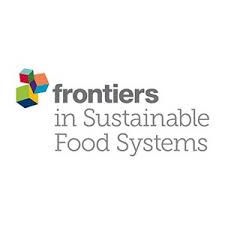Ver ítem
- xmlui.general.dspace_homeCentros e Institutos de InvestigaciónCICVyA. Centro de Investigación en Ciencias Veterinarias y AgronómicasInstituto de Microbiología y Zoología AgrícolaArtículos científicosxmlui.ArtifactBrowser.ItemViewer.trail
- Inicio
- Centros e Institutos de Investigación
- CICVyA. Centro de Investigación en Ciencias Veterinarias y Agronómicas
- Instituto de Microbiología y Zoología Agrícola
- Artículos científicos
- Ver ítem
The Current and Future Role of Microbial Culture Collections in Food Security Worldwide
Resumen
Food security is the pillar of nutritional wellbeing for food availability, and is necessary to satisfy all physiological needs to thus maintain the general wellbeing of populations. However, global agricultural deficiencies occur due to rapid population growth, causing
an increase in competition for resources; such as water, land, and energy, leading to the overexploitation of agro-ecosystems, and the inability to produce a suitable quantity of
[ver mas...]
Food security is the pillar of nutritional wellbeing for food availability, and is necessary to satisfy all physiological needs to thus maintain the general wellbeing of populations. However, global agricultural deficiencies occur due to rapid population growth, causing
an increase in competition for resources; such as water, land, and energy, leading to the overexploitation of agro-ecosystems, and the inability to produce a suitable quantity of efficient food. Therefore, the development of sustainable agro-biotechnologies is vital
to increase crop yield and quality, reducing the negative impacts caused by intensive non-sustainable agricultural practices. In this way, the genetic and metabolic diversity of soil and plant microbiota in agro-ecosystems are a current and promising alternative
to ensure global food security. Microbial communities play an important role in the improvement of soil fertility and plant development by enhancing plant growth and health through several direct and/or indirect mechanisms. Thus, the bio-augmentation
of beneficial microbes into agro-ecosystems not only generates an increase in food production but also mitigates the economic, social, and environmental issues of intensive non-sustainable agriculture. In this way, the isolation, characterization, and exploitation
of preserved beneficial microbes in microbial culture collections (MCC) is crucial for the ex situ maintenance of native soil microbial ecology focused on driving sustainable food production. This review aims to provide a critical analysis of the current and future role
of global MCC on sustainable food security, as providers of a large number of beneficial microbial strains with multiple metabolic and genetic traits.
[Cerrar]

Autor
Díaz-Rodríguez, Alondra María;
Salcedo Gastelum, Lilian Alejandra;
Félix Pablos, Carmen María;
Parra-Cota, Fannie Isela;
Santoyo, Gustavo;
Puente, Mariana Laura;
Bhattacharya, Dhruba;
Mukherjee, Joydeep;
de los Santos-Villalobos, Sergio;
Fuente
Frontiers in Sustainable Food Systems 4 : 614739 (January 2021)
Fecha
2021-01-14
Editorial
Frontiers Media S.A.
ISSN
2571-581X
Formato
pdf
Tipo de documento
artículo
Palabras Claves
Derechos de acceso
Abierto
 Excepto donde se diga explicitamente, este item se publica bajo la siguiente descripción: Creative Commons Attribution-NonCommercial-ShareAlike 2.5 Unported (CC BY-NC-SA 2.5)
Excepto donde se diga explicitamente, este item se publica bajo la siguiente descripción: Creative Commons Attribution-NonCommercial-ShareAlike 2.5 Unported (CC BY-NC-SA 2.5)


